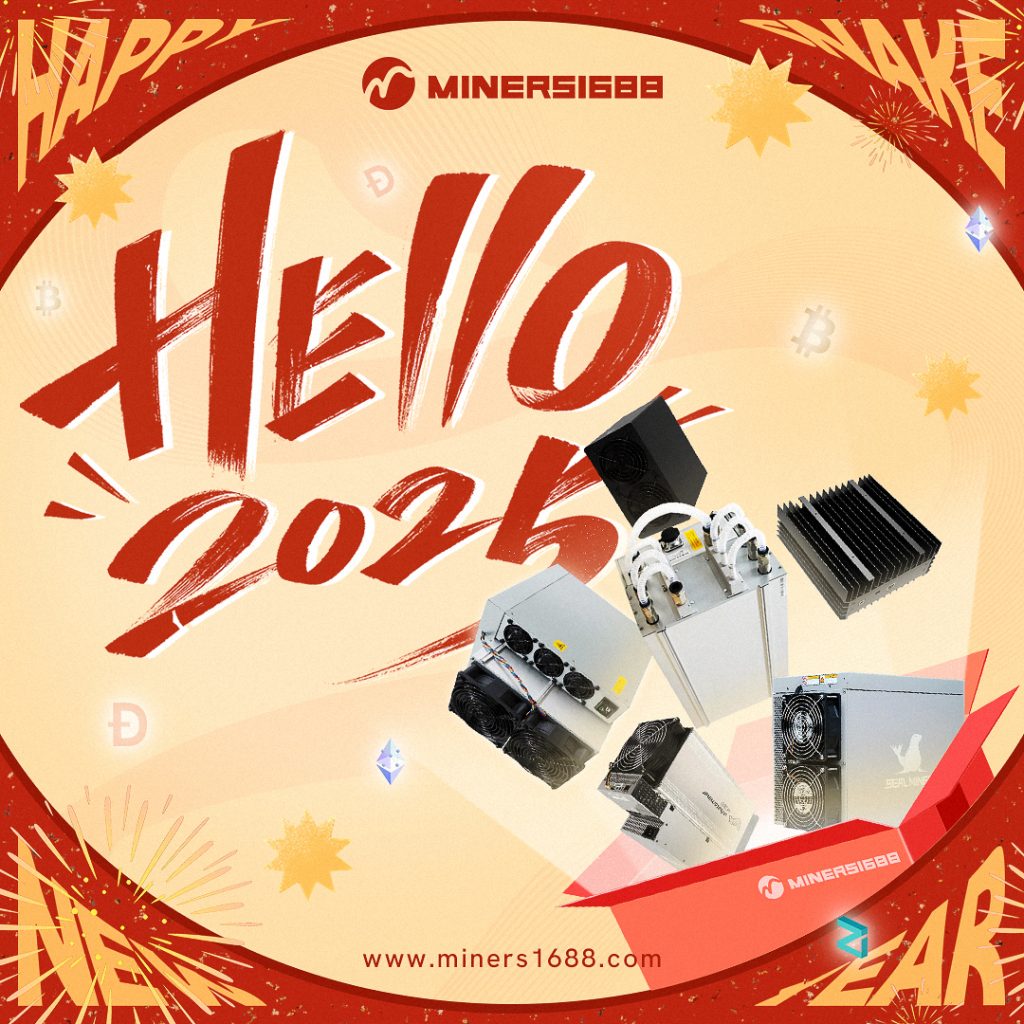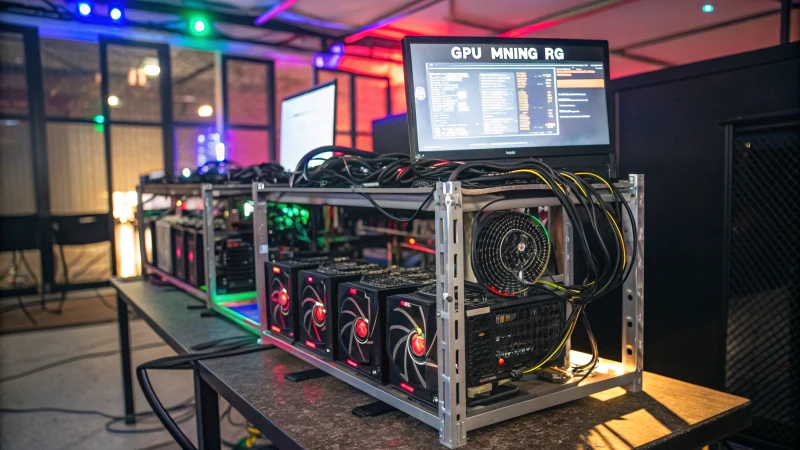
Cryptocurrency mining continues to be a popular venture for tech-savvy individuals seeking passive income. In 2025, GPU mining remains a viable option due to specific cryptocurrencies that offer good returns.
The best cryptocurrencies for GPU mining in 2025 include Ravencoin, Ethereum Classic, and Zcash due to their profitability and ASIC resistance. These coins utilize algorithms like KAWPOW, Ethash, and Equihash, making them ideal for GPU miners.
While these cryptocurrencies stand out for their mining potential, it’s crucial to delve deeper into each coin’s characteristics and market dynamics. Understanding these factors can help miners maximize their investments and adapt to future trends.
What Makes a Cryptocurrency Suitable for GPU Mining?
Delving into the realm of cryptocurrency mining with GPUs involves more than just knowing how to set up the hardware. Understanding what makes a cryptocurrency GPU-friendly is crucial for profitability.
A cryptocurrency suitable for GPU mining typically uses algorithms like Ethash or KAWPOW, which are designed to be ASIC-resistant. This ensures that GPU miners remain competitive against ASIC machines.
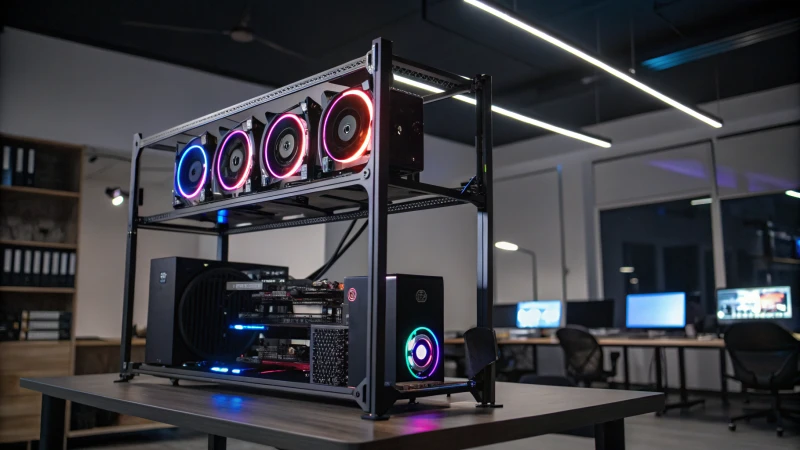
Understanding GPU Mining Algorithms
Cryptocurrencies employ specific algorithms to secure their networks. Algorithms such as Ethash and KAWPOW are designed to be ASIC-resistant, allowing GPUs to efficiently participate in the mining process. Unlike SHA-256, used by Bitcoin, these algorithms ensure decentralization by preventing ASIC dominance.
Profitability Considerations
The potential earnings from GPU mining are influenced by multiple factors, including the coin’s current market value and network difficulty. For instance, Ravencoin uses the KAWPOW algorithm, which can yield approximately $87 per month on average. However, fluctuating electricity costs and coin value significantly affect profitability.
| Cryptodevises | Algorithme | Estimated Monthly Profit |
|---|---|---|
| Ravencoin (RVN) | KAWPOW | $87 |
| Ethereum Classic (ETC) | Ethash | $66.74 |
| Zcash (ZEC) | Equihash | $100 |
Decentralization and Accessibility
ASIC-resistance is key for maintaining a decentralized network, providing opportunities for individual miners to compete. Coins like Vertcoin emphasize this by ensuring mining remains accessible via GPUs, promoting a more equitable mining environment.
Environmental Impact and Efficiency
Mining requires substantial energy consumption, making efficiency a crucial consideration. Cryptocurrencies utilizing energy-efficient algorithms reduce the carbon footprint, aligning with global sustainability efforts. Coins like Monero use the RandomX algorithm, known for being CPU and GPU-friendly while maintaining competitive hashing power.
Privacy Features and Community Support
Coins like Zcash and Monero offer privacy-centric features, appealing to miners interested in supporting secure transaction networks. These coins often have strong community backing, providing resources and support for miners looking to optimize their setups.
Each factor contributes uniquely to a cryptocurrency’s suitability for GPU mining, influencing both technical and economic aspects for potential miners. Exploring these elements helps in making informed decisions about entering the GPU mining landscape.
How Do Algorithms Impact Mining Profitability?
Cryptocurrency mining profitability hinges significantly on the algorithms used. These algorithms determine the computational resources required, influencing energy consumption and ultimately, profit margins. Understanding these dynamics can help miners optimize their strategies for better returns.
Algorithms impact mining profitability by dictating the type of hardware needed, energy efficiency, and block reward mechanisms. Miners must choose algorithms that align with their resources to maximize profits.
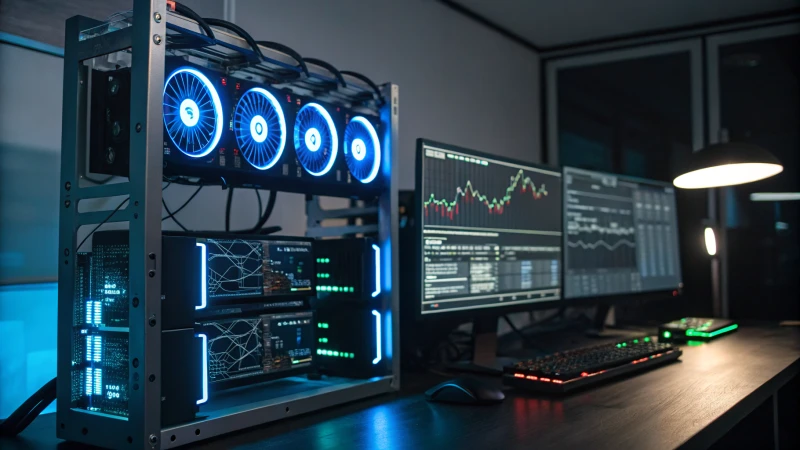
Comprendre les algorithmes miniers
Mining algorithms are the core protocols that dictate how cryptocurrencies are mined. They determine the type of computational tasks miners must perform to verify transactions and add blocks to the blockchain. The choice of algorithm can affect a cryptocurrency’s security, decentralization, and, importantly, profitability.
Algorithm Types and Hardware Requirements
Different algorithms require various hardware configurations. For instance, Bitcoin uses SHA-256, which favors ASIC miners due to its high computational demands. In contrast, KAWPOW, used by Ravencoin, is optimized for GPUs, making it accessible to individual miners.
| Algorithme | Matériel | Example Coin |
|---|---|---|
| SHA-256 | ASIC | Bitcoin |
| KAWPOW | GPU | Ravencoin |
| RandomX | CPU/GPU | Monero |
Energy Efficiency and Cost Implications
The energy efficiency of an algorithm directly impacts mining costs. Algorithms like Ethash6, used by Ethereum Classic, are designed to be memory-intensive rather than purely computational, which can reduce energy consumption but require specific hardware setups.
Block Rewards and Difficulty Adjustments
Algorithms also govern the block reward structure and difficulty adjustments. For instance, Zcash’s Equihash adjusts difficulty based on network hash rate, influencing how quickly new coins are mined and thus affecting profitability. An understanding of how difficulty adjustments work is crucial for miners to predict their potential returns.
Decentralization and Market Dynamics
Some algorithms are ASIC-resistant, promoting decentralization by allowing more participants to mine using readily available hardware like GPUs or CPUs. This can impact market dynamics by preventing large mining farms from dominating the network, thus affecting the overall profitability landscape for individual miners.
Algorithm Evolution and Adaptability
The adaptability of an algorithm to changing market conditions can also play a role in profitability. Algorithms that can be updated or forked to prevent centralization or adapt to technological advancements can maintain long-term profitability for miners. Understanding these evolutionary aspects can guide investment decisions in mining hardware and resources.
What Are the Key Features of Ravencoin for Miners?
Ravencoin (RVN) has emerged as a prominent choice for miners due to its unique features that cater specifically to GPU mining. What sets it apart in the competitive crypto mining landscape?
Ravencoin offers ASIC-resistance through the KAWPOW algorithm, promoting decentralization and fairness. Its focus on asset transfer and decentralized applications provides additional utility, making it attractive for GPU miners.
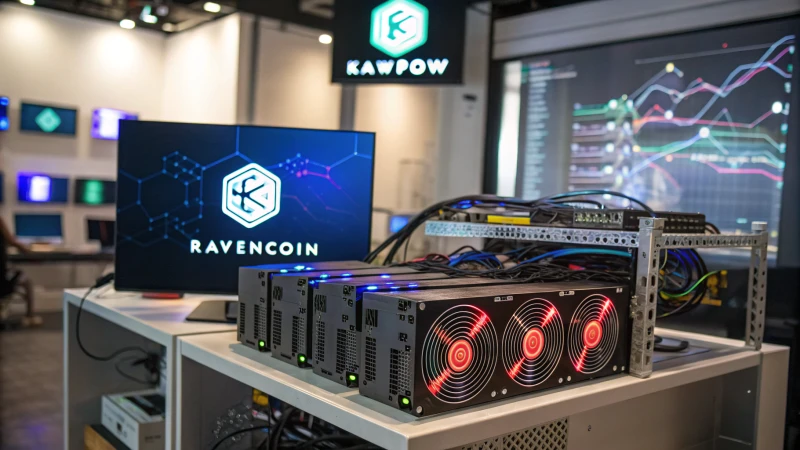
ASIC-Resistance with KAWPOW
One of the standout features of Ravencoin is its ASIC-resistance. This is achieved through the KAWPOW algorithm, which blends ProgPoW and Ethash, making it difficult for specialized mining hardware to dominate. This ensures that GPU miners remain competitive and
can participate in mining activities without being overshadowed by large-scale operations.
Focus on Decentralization
Ravencoin is designed with decentralization at its core. By maintaining an ASIC-resistant stance, the network encourages a wider distribution of miners, preventing centralization. This is crucial for preserving the integrity and security of the blockchain.
Asset Transfer Capabilities
Beyond mining, Ravencoin is also renowned for its ability to facilitate asset transfer on the blockchain. This adds an extra layer of utility and makes it an attractive option for those looking to explore decentralized applications.
| Fonctionnalité | Description |
|---|---|
| Algorithme | KAWPOW |
| Resistance | ASIC-resistant |
| Utility | Asset Transfer |
Community-Driven Development
The development of Ravencoin is largely driven by its community, fostering an environment where miners can have a say in future updates. This community-focused approach ensures that the needs of miners are heard and addressed. To explore more about Ravencoin’s community projects, check out their forums and discussion groups.
Profitability and Mining Strategies
Ravencoin’s profitability can vary based on market conditions, electricity costs, and hardware efficiency. Miners should continuously evaluate these factors to optimize their operations. Additionally, staying updated with mining strategies can help enhance returns and ensure efficient resource allocation.
Is Ethereum Classic Still a Viable Option for GPU Miners?
With Ethereum’s shift to Proof-of-Stake, many GPU miners are reevaluating their options. Ethereum Classic (ETC), with its Ethash algorithm, remains a potential choice. Is it still profitable?
Ethereum Classic (ETC) remains a viable option for GPU miners due to its Ethash algorithm, which is ASIC-resistant, making it suitable for home mining setups. Profitability depends on market conditions, electricity costs, and hardware efficiency.
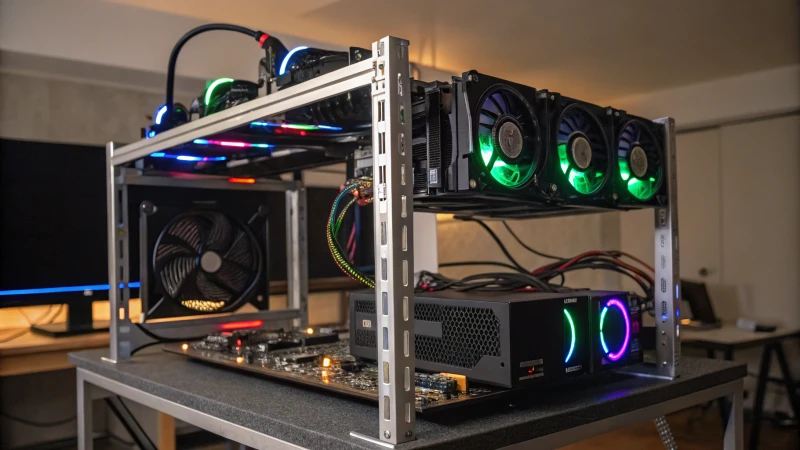
Understanding the Shift: Ethereum vs. Ethereum Classic
Ethereum’s transition to a Proof-of-Stake model has left many miners searching for alternatives. Ethereum Classic (ETC) continues to use the Ethash algorithm, which is ASIC-resistant, making it an appealing option for those using GPUs. However, this shift has also increased competition among GPU miners on the ETC network.
Analyse de rentabilité
When considering mining profitability, it’s crucial to factor in electricity costs, the current price of ETC, and the mining difficulty. Here’s a simple table showcasing potential monthly returns based on current data:
| Electricity Cost | Monthly Return |
|---|---|
| $0.10/kWh | $66.74 |
| $0.15/kWh | $50.00 |
These figures assume a certain level of mining hardware efficiency and may vary based on individual setups.
Technical Considerations
The Ethash algorithm used by Ethereum Classic is particularly suited for GPU mining. Miners must ensure their hardware can handle the computational demands efficiently. Upgrading to more powerful GPUs or optimizing existing setups can significantly impact profitability.
Market Volatility and Risks
Cryptocurrency markets are inherently volatile. The value of Ethereum Classic can fluctuate rapidly, affecting mining profitability. Miners should stay informed about market trends and consider hedging strategies to mitigate potential losses.
Comparison with Other Cryptocurrencies
Apart from ETC, there are other viable cryptocurrencies for GPU mining like Ravencoin and Zcash. Each has its own advantages and challenges:
- Ravencoin: Uses the KAWPOW algorithm, known for being ASIC-resistant.
- Zcash: Offers privacy features but requires different hardware considerations.
Evaluating these options against ETC can help miners choose the best cryptocurrency to mine based on their hardware and energy costs.
For further insights into other cryptocurrencies suitable for GPU mining, consider exploring comparative analysis resources available online.
Community and Support
A robust community supports Ethereum Classic, providing valuable resources for new and experienced miners alike. Engaging with forums and social media groups can offer troubleshooting tips and updates on network changes.
Despite the challenges, Ethereum Classic remains a considerable option for GPU miners looking to leverage their existing setups effectively.
How to Start Mining Zcash with Your GPU?
Dive into the world of cryptocurrency by mining Zcash with your GPU. Known for its privacy and profitability, Zcash offers an enticing option for both beginners and seasoned miners. Learn how to set up your system, choose the right software, and join a mining pool.
To start mining Zcash with a GPU, first ensure your hardware is compatible. Download mining software like EWBF Miner or Optiminer, join a Zcash mining pool, and configure your settings to optimize performance.
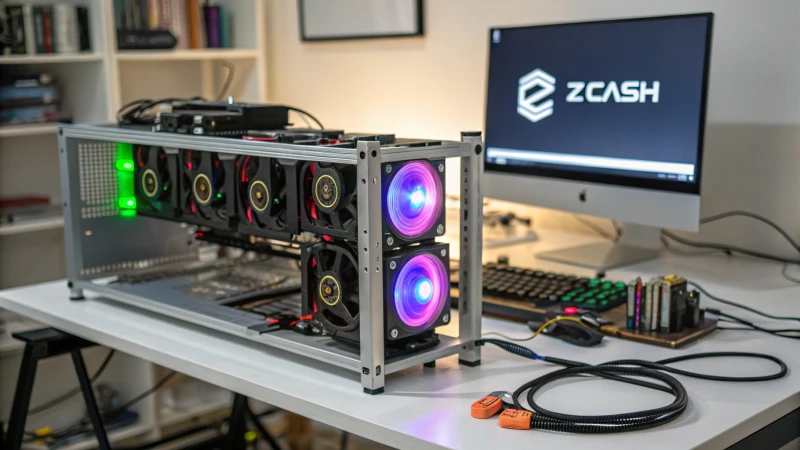
Choosing the Right GPU for Zcash Mining
Zcash mining requires a GPU with decent processing power. Cards like the NVIDIA GTX 1070 or AMD Radeon RX 580 are popular choices. Ensure your GPU has adequate memory (at least 3 GB) to handle Equihash algorithm efficiently.
Setting Up Your Mining Software
Once your hardware is ready, select a mining software. Options like EWBF Miner and Optiminer are optimized for Zcash. Download and install the software, then configure it by entering the Zcash mining pool URL and your wallet address.
| Software | Supported GPUs | Platform |
|---|---|---|
| EWBF Miner | NVIDIA | Windows/Linux |
| Optiminer | AMD | Linux |
Joining a Zcash Mining Pool
Mining alone can be less profitable due to high competition. Join a mining pool such as Flypool or Slushpool to increase your chances of earning rewards. Input the pool’s server address in your mining software configuration.
Optimizing Your Mining Setup
To maximize profits, tweak your GPU settings for better performance and power efficiency. Use tools like MSI Afterburner for NVIDIA cards or AMD’s Radeon Settings to adjust clock speeds and voltage.
Monitoring Your Mining Performance
Keep an eye on hash rates and energy consumption using monitoring tools. This ensures your system runs optimally and helps you identify any issues early on. Regularly update your mining software to take advantage of new features and improvements.
Conclusion
In 2025, top cryptocurrencies for GPU mining include Ravencoin, Ethereum Classic, and Zcash, known for their profitability and ASIC resistance, making them ideal for miners.
- Learn how Ethash maintains decentralization by preventing ASIC dominance, crucial for GPU miners.
- Discover why Ravencoin’s profitability makes it an attractive option for GPU miners.
- Understand how fluctuating electricity costs can affect mining profitability.
- Explore how Vertcoin’s approach promotes a decentralized mining environment.
- Explore the specifics of KAWPOW to understand its design and benefits for GPU miners.
- Discover how Ethash influences Ethereum Classic’s mining efficiency and hardware requirements.
- Learn about difficulty adjustments and their effect on mining profitability and network stability.
- Gain insights into how algorithm characteristics guide investment in mining equipment.
- Understand how ASIC-resistance promotes fairness by limiting specialized hardware’s influence in mining.
- Learn how ASIC resistance ensures wider participation and prevents centralization among miners.
- Discover how Ravencoin facilitates secure asset transfers on its blockchain.
- Explore community-driven projects and discussions around Ravencoin developments.
- Enhance your mining efficiency by learning advanced strategies for Ravencoin.
- Discover how the Ethash algorithm resists ASIC dominance, ensuring fair competition for GPU miners.
- Learn effective strategies to enhance your GPU’s performance when mining with the Ethash algorithm.
- Explore various hedging techniques to protect your mining profits against market volatility.
- Access detailed comparisons to make informed decisions about which cryptocurrency to mine with your GPUs.
- Explore how Equihash works and why specific GPUs are recommended for optimal performance in mining.
- Discover top-rated Zcash mining pools that offer reliable payout structures and enhanced mining efficiency.
- Find the newest features in Zcash mining software to boost efficiency and stay competitive.


